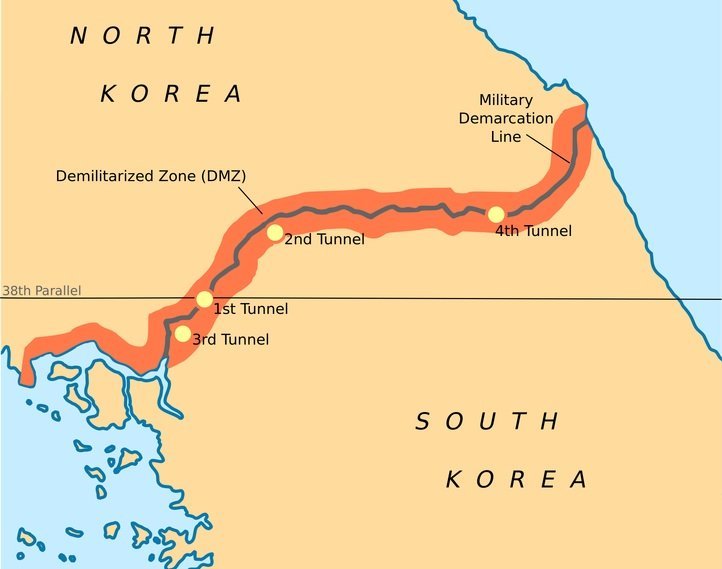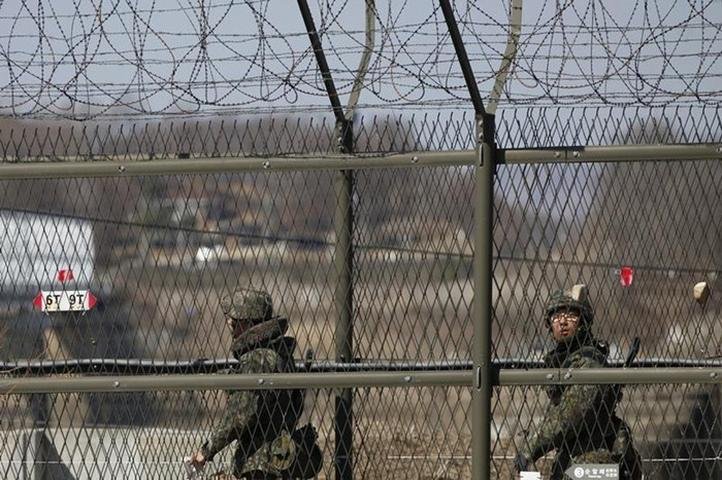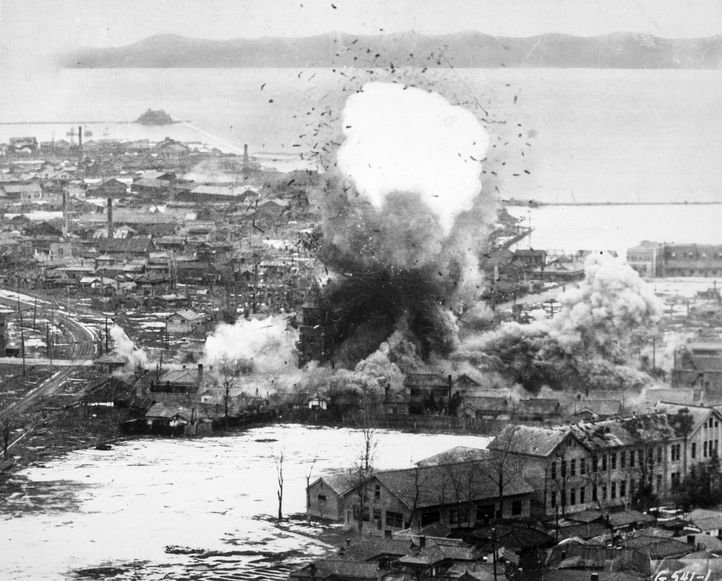South Korea fired tens of artillery rounds towards North Korea on August 20 after the North fired a projectile towards a South Korean loudspeaker that had been blaring anti-Pyongyang broadcasts, the defence ministry in Seoul said.
North Korea did not immediately respond to the South’s shots, it said, as tensions rose on the peninsula.
South Korea said its detection equipment had spotted the trajectory of a suspected North Korean projectile launched at around 3:52 pm (0652 GMT), which did not appear to have damaged the loudspeaker or caused any injuries.
“Our military has stepped up monitoring and is closely watching North Korean military movements,” South Korea’s defence ministry said in a statement.
South Korea’s military raised its alert status to the highest level.

There was no mention of the firing in North Korean state media, which does not typically make immediate comment on events.
The suspected North Korean projectile landed in an area about 60 km (35 miles) north of Seoul in the western part of the border zone, the defence ministry said. South Korean residents in the area were ordered to evacuate, according to the South’s Yonhap news agency.
Yonhap reported that the projectile appeared to have landed in a mountainous area near a South Korean military base in the town of Yeoncheon.
South Korea’s presidential office said it had convened a meeting of the national security council.
The exchange of fire was the first between the two Koreas since last October, when North Korean soldiers approached the military border and did not retreat after the South fired warning shots, the South Korean Defence Ministry said at the time. The North’s soldiers fired back in an exchange of gunfire that lasted about 10 minutes, with no casualties.

Tension between the two Koreas has risen since early this month when landmine explosions in the Demilitarised Zone (DMZ) of the border wounded two South Korean soldiers. Seoul accused North Korea of laying the mines, which Pyongyang has denied.
Seoul then began blasting anti-North Korean propaganda from loudspeakers on the border, resuming a tactic that both sides had halted in 2004.
North Korea on Saturday demanded that the South halt the broadcasts or face military action, and on August 17 began conducting its own broadcasts.
The exchange of fire on August 20 came amid ongoing annual joint U.S. and South Korean military exercises, which began the same day and which North Korea condemns as preparation for war.

The two Koreas have remained in a technical state of war since the 1950-1953 Korean War ended in a truce, not a peace treaty.
South Korea’s won currency weakened in non-deliverable forward trading on the reports of the firing, which came after onshore spot trading had closed. The 1-month contract rose as high as 1,192.7 won per dollar from around 1,189.8 earlier.

















